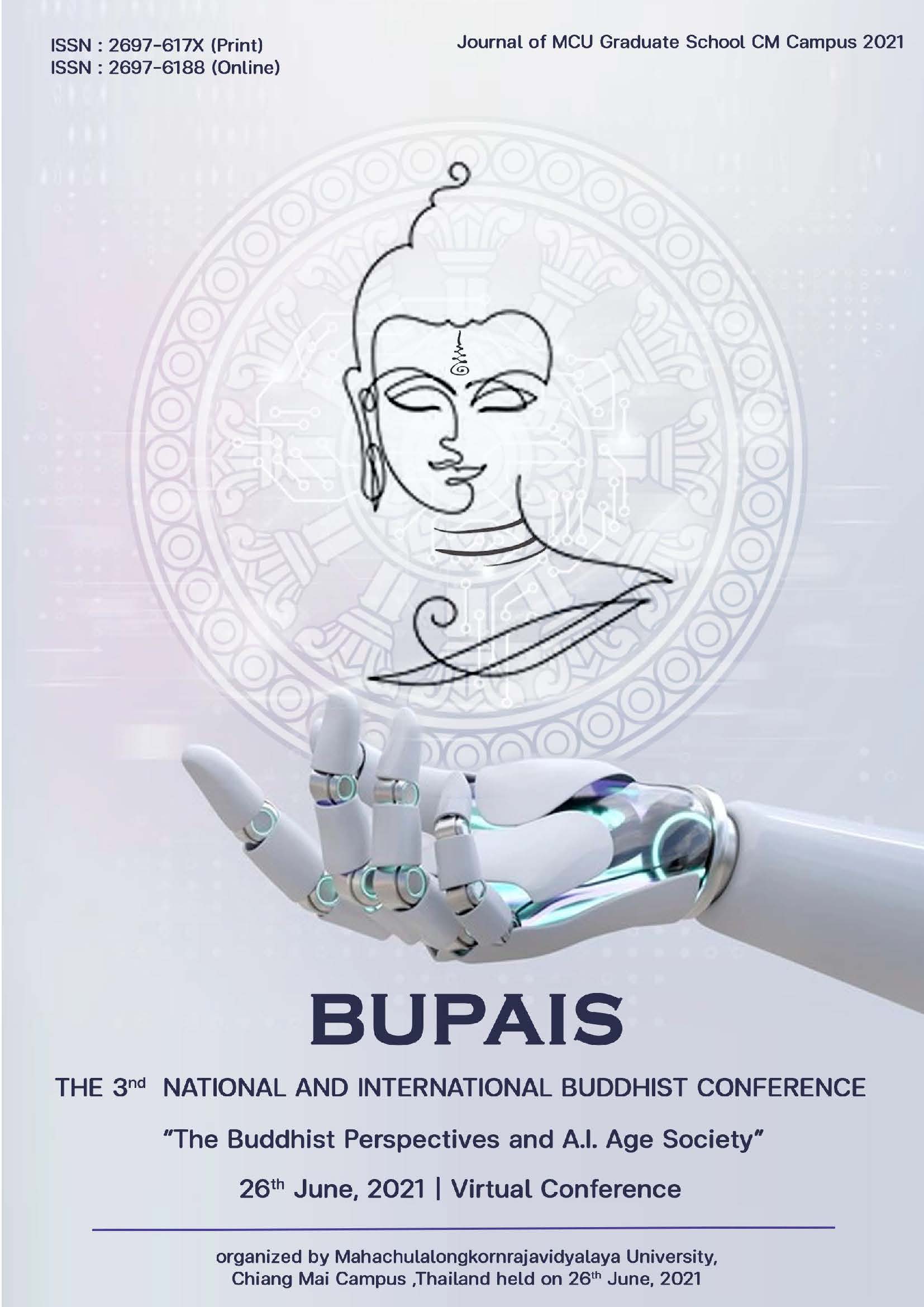ภาวะผู้นำเชิงพุทธในยุค New Normal
บทคัดย่อ
โควิด-19 ถือเป็นปรากฏการณ์ที่ทำให้เกิดการเปลี่ยนแปลงมหาศาล เพราะเป็นการระบาดใหญ่ทั่วโลก ส่งผลให้เกิดการปรับเปลี่ยนพฤติกรรมอย่างรุนแรงในระยะสั้น และหลายพฤติกรรมจะอยู่ถาวรกลายเป็น New Normal ซึ่งเป็นสิ่งที่หลายองค์กรกำลังศึกษาอยู่ ส่งผลต่อวิถีชีวิต การทำงาน การดำเนินชีวิตประจำวัน การเกิดขึ้นและการดำเนินโควิด-19 ครั้งนี้ ทุกภาคส่วนต่างๆ ไม่ว่าจะเป็นภาคธุรกิจ ภาครัฐ หรือส่วนบุคคล ล้วนต้องปรับตัว
ท่ามกลางการเปลี่ยนแปลงในทุกภาคส่วน ผู้นำเป็นผู้ที่สามารถส่งผลกระทบต่อความเป็นไปขององค์กรในทุกๆ ด้าน ไม่ว่าจะเป็นด้านการกำหนดนโยบาย การจัดการ การคิดริเริ่มสร้างสรรค์ การวางแผน การบริหารกำกับการและดำเนินการปรับปรุงแก้ไขปัญหาต่าง ๆ ให้สัมฤทธิ์ผลตามเป้าหมายขององค์กร ผู้นำจึงเป็นผู้มีอิทธิพลที่สามารถส่งผลกระทบความเป็นไปขององค์กรในทุกๆ ด้าน ไม่ว่าจะเป็นด้านที่เกี่ยวกับการบริหารและงานบุคคล ดังนั้นในทุกองค์กรจึงจำเป็นต้องมีผู้นำที่ดี
การพัฒนาภาวะผู้นำในปัจจุบันจึงหันมาใช้วิธีการตามแนวพระพุทธศาสนากันมากขึ้น ด้วยเหตุนี้พระพุทธศาสนาจึงเข้ามามีบทบาทในการพัฒนาภาวะผู้นำที่เรียกว่า “ผู้นำเชิงพุทธ” ด้วยเหตุว่าผู้นำนั้นเมื่อประกอบการบูรณาการด้วยพระพุทธศาสนาเข้าไปแล้ว ย่อมได้ชื่อว่า มีความเก่ง (วิชชา) และความดี (จรณะ) ตรงตามแบบที่เรียกว่า เป็นทั้งคนเก่งและคนดี (วิชชาจรณะสัมปันโน) ในคนเดียวกัน กล่าวคือ การเป็นผู้นำที่ดีนั้นจะต้องปกครองและบริหารโดยธรรม ยึดธรรมคือความถูกต้องเป็นหลัก เพราะจะสร้างความยุติธรรมและความถูกต้องให้แก่ผู้นำ และผู้ใต้บังคับบัญชาหรือผู้ร่วมงาน อันจะก่อให้เกิดความสุขในการทำงาน มีประสิทธิภาพ ประสิทธิผล เป็นองค์กรที่มาแห่งความสุข (Happiness Organization) เพราะหลักธรรมมุ่งเน้นให้ผู้นำสามารถประสานความสัมพันธ์กับหมู่คน เอื้อเฟื้อเผื่อแผ่สิ่งที่เป็นประโยชน์ให้กับบุคคลอื่นๆ ตลอดจนถึงสังคมในวงกว้าง
บรรณานุกรม
กระทรวงการอุดมศึกษา วิทยาศาสตร์ วิจัยและนวัตกรรม. (2563). กรอบแนวทางการดำเนินการตามมาตรฐานกิจการนักศึกษา. กรุงเทพมหานคร : สำนักงานปลัดกระทรวงอุดมศึกษา วิทยาศาสตร์ วิจัยและนวัตกรรม.
จุมจินต์ สลัดทุกข์. (2543). ตัวแปรที่เกี่ยวข้องกับการปรับตัวของนิสิตระดับปริญญาตรีชั้นปี ที่ 1 มหาวิทยาลัยศรีนครินทรวิโรฒ. ปริญญานิพนธ์การศึกษามหาบัณฑิต. จิตวิทยาการแนะแนว บัณฑิตวิทยาลัย มหาวิทยาลัยศรีนครินทรวิโรฒ.
จำนงค์ อดิวัฒนสิทธ์. (2558). “พุทธจริยธรรมกับการพัฒนาสังคม”. ออนไลน์. https://www. mcu.ac.th/article/detail/14306.
พระธรรมปิฎก (ป.อ. ปยุตฺโต). (2546). ภาวะผู้นำ. พิมพ์ครั้งที่ 7. กรุงเทพมหานคร : สุขภาพใจ.
พระศรีปริยัติโมลี (สมชัย กุสลจิตฺโต). (2547). สงฆ์ผู้นำสังคม, กรุงเทพมหานคร : มหาจุฬาลงกรณราชวิทยาลัย.
พระมหาสมปอง มุทิโต. (2547). คัมภีร์อภิธานวรรณนา. พิมพ์ครั้งที่ 2. กรุงเทพมหานคร : ประยูรวงศ์ พริ้นติ้ง จำกัด.
มหาจุฬาลงกรณราชวิทยาลัย. (2539). พระไตรปิฎกภาษาไทย ฉบับมหาจุฬาลงกรณราชวิทยาลัย. กรุงเทพมหานคร: โรงพิมพ์มหาจุฬาลงกรณราชวิทยาลัย.
วราภรณ์ ตระกูลสฤษดิ์. (2545). จิตวิทยาการปรับตัว. พิมพ์ครั้งที่ 2. กรุงเทพมหานคร : ศูนย์ส่งเสริมวิชาการ.
สำนักงานพัฒนาการท่องเที่ยว. (2546). เอกสารชุดฝึกอบรมทางไกลหลักสูตรการจัดการการท่องเที่ยวชุมชนอย่างยั่งยืน. กรุงเทพมหานคร: สำนักงานพัฒนาการท่องเที่ยว กระทรวงการท่องเที่ยวและกีฬา.

